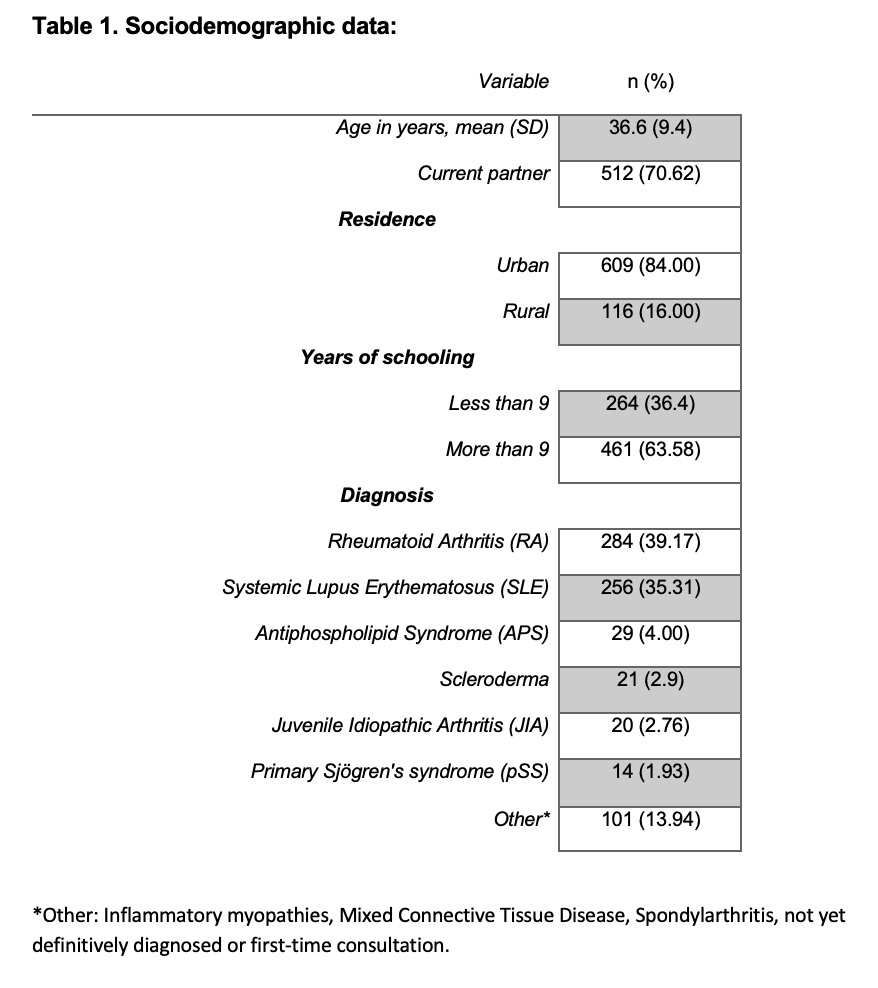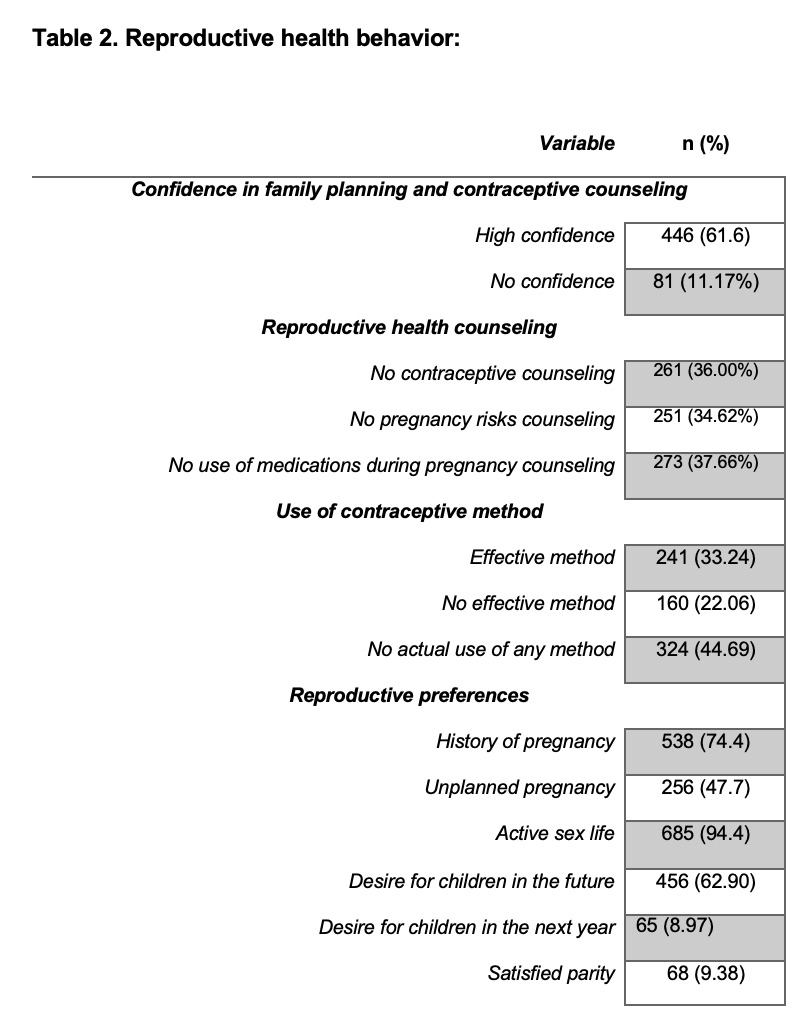Session Information
Session Type: Poster Session A
Session Time: 10:30AM-12:30PM
Background/Purpose: Autoimmune rheumatic diseases (ARDs) affect women during their childbearing years, often leading to pregnancy complications. Effective management of this population requires family planning and education on sexual and reproductive health (SRH). Understanding the behaviors, preferences, and knowledge regarding SRH can enhance individualized care tailored to patients’ perspectives and needs.
We aim to describe the knowledge and behaviors regarding SRH and their associated factors in women with ARDs.
Methods: This cross-sectional analytical study included women with ARDs aged 18 to 50 from four rheumatology centers. The Rheum Reproductive Behavior (RRB) questionnaire (1), comprising 47 items, was used to assess knowledge and behaviors. Sociodemographic and clinical characteristics of the population are described.
Results: The study included 725 female participants with a mean age of 36.6 years (SD 9.4); 84% lived in urban areas, and 29.8% held a university degree. The most frequent diagnosis was rheumatoid arthritis in 39%, followed by systemic lupus erythematosus in 35%.
More than half of the patients reported high confidence in discussing family planning and contraceptive counseling with their rheumatologist (61.6%), while 11% reported no confidence at all. However, 36% of patients reported not having received contraceptive counseling, 34% did not receive information about pregnancy risks, and 37% did not receive information about the use of medications during pregnancy.
Among the surveyed patients, 94.4% had an active sex life, 47.29% were not using any contraceptive method, and 23.35% were not using effective methods. About half of the patients did not use any contraceptive method at first intercourse 46%. Among those using contraceptive methods, the majority made the decision without consulting a medical professional (34.2%).
More than half of the patients reported having the number of children they wanted (65%), while 10% reported having more children than they wanted. The most frequent reason was not using contraceptive methods (37%), and up to 20% reported contraceptive method failure. Twenty-three percent of the patients reported having fewer children than they wanted, with the main cause being their rheumatic disease in 60% of the cases.
Conclusion: This study highlights a significant deficiency in reproductive health education and counseling for women with autoimmune rheumatic diseases. Despite most patients feeling confident in discussing family planning and contraception with their rheumatologist, a considerable proportion do not receive the necessary counseling on these critical topics. It is crucial to develop specific and accessible educational programs for this population and to promote better communication between patients and healthcare professionals, to enable patients to make informed decisions about their reproductive health, reduce the risks during pregnancy, and facilitate appropriate family planning.
To cite this abstract in AMA style:
Lujano-Negrete A, Perez-Barbosa L, Garcia C, SKINNER TAYLOR C, Hernandez Linas J, Lobato-Belmonte A, Ambriz Murillo Y, Gastelum-Strozzi A, Manrique de Lara A, Rodriguez-Flores A, Cardenas-de la Garza J, Maradiaga-Cecena M, Rodriguez Orozco G, Carrazco Chapa A, Galarza-Delgado D, Pelaez Ballestas I. Reproductive Health in Women with Rheumatic Diseases: Knowledge and Behaviors [abstract]. Arthritis Rheumatol. 2024; 76 (suppl 9). https://acrabstracts.org/abstract/reproductive-health-in-women-with-rheumatic-diseases-knowledge-and-behaviors/. Accessed .« Back to ACR Convergence 2024
ACR Meeting Abstracts - https://acrabstracts.org/abstract/reproductive-health-in-women-with-rheumatic-diseases-knowledge-and-behaviors/


